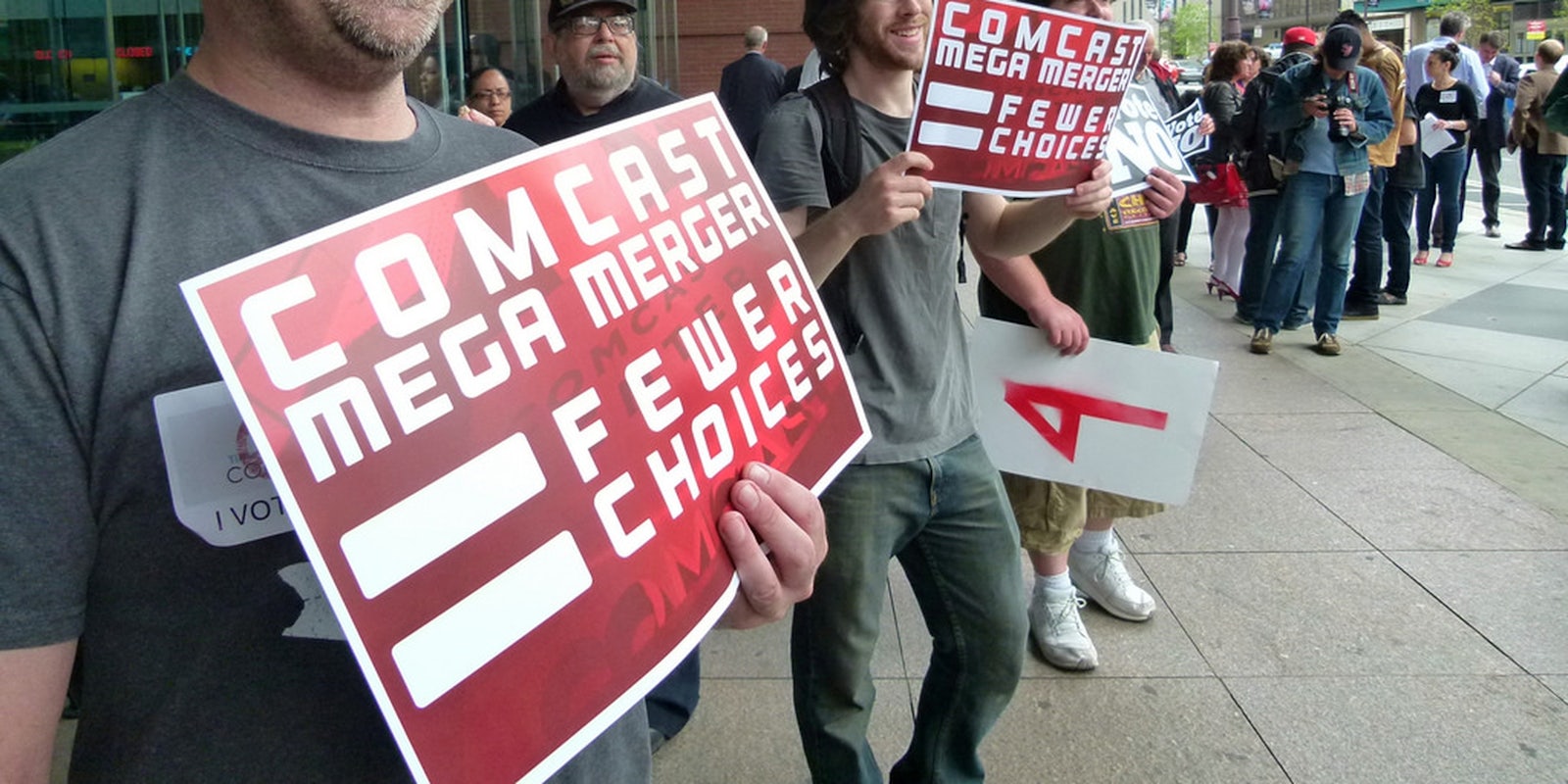As the FCC and the Department of Justice prepare to review the proposed merger of Comcast and Time Warner Cable, Democratic senators are warning the agencies to block the deal on the grounds that it would reduce the quality and choice of U.S. Internet service.
Sens. Al Franken (D-Minn.), Bernie Sanders (I-Vt.), Ed Markey (D-Mass.), Ron Wyden (D-Ore.), Elizabeth Warren (D-Mass.), and Richard Blumenthal (D-Conn.) penned a letter on Tuesday slamming the “unmatched power” that such a merger would give the new mega-company.
“We believe that Comcast-TWC’s unmatched power in the telecommunications industry would lead to higher prices, fewer choices, and poorer quality services for Americans—inhibiting U.S. consumers’ ability to fully benefit from modern technologies and American businesses’ capacity to innovate and compete on a global scale,” the letter reads.
Comcast is currently the largest ISP in the U.S., followed by Time Warner Cable. The two companies rarely compete for the same customers, however, because of geographic divisions among ISPs. Comcast says its lack of direct competition with Time Warner Cable should ease concerns over marketplace competition.
Bloomberg reported on Friday that the DOJ‘s lawyers were getting ready to recommend that the department block the deal on antitrust grounds. In addition, the report said, FCC antitrust lawyers “aren’t negotiating with Comcast about conditions to the merger that would resolve concerns, such as selling parts of its business or changing practices.”
FCC Chairman Tom Wheeler, a former lobbyist for both the cable and wireless lobbies, has been fiercely critical of what many consider the quasi-monopolistic self-enrichment of major American Internet service providers.
“We know from the history of previous networks that both human nature and economic opportunism act to encourage network owners to become gatekeepers that prioritize their interests above the interests of their users,” Wheeler said in a statement just before the FCC voted 3-2 to adopt strong new rules protecting net neutrality.
H/T Ars Technica | Photo via Free Press/Flickr (CC BY SA 2.0)
